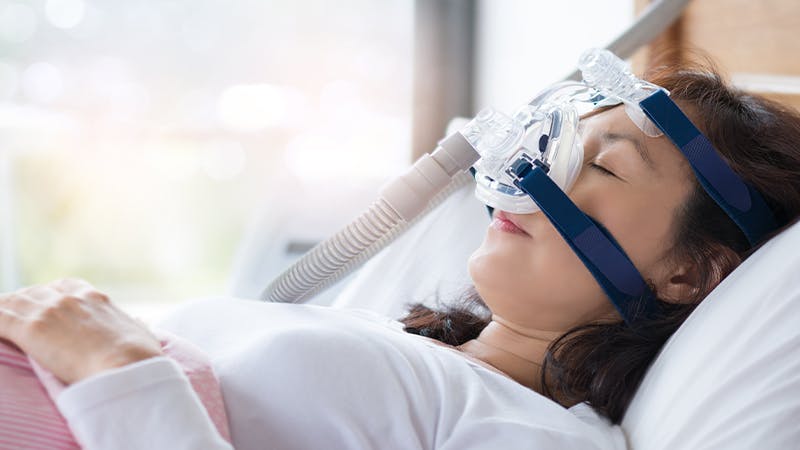
You may be among the many individuals relying on Continuous Positive Airway Pressure (CPAP) machines to manage your sleep apnea or other respiratory conditions. While CPAP machines are highly effective in improving your sleep quality and overall health, you might have experienced an unexpected side effect: headaches. At Texas ENT Specialists (TENTS), we understand your concerns and are here to shed light on whether CPAP machines can cause headaches and provide expert insights to help you find solutions.
The Potential Link Between CPAP Machines and Headaches
CPAP machines are commonly prescribed for obstructive sleep apnea (OSA) individuals. They deliver a steady stream of pressurized air through a mask, which helps keep your airway open while you sleep. This treatment has been a game-changer for countless individuals, improving their sleep quality, daytime alertness, and overall well-being.
While CPAP therapy can offer numerous benefits, some users have reported experiencing headaches as an unintended consequence. These headaches can range from mild discomfort to severe migraines, leading to understandable concerns about the safety and effectiveness of CPAP treatment.
Here at Texas ENT Specialists (TENTS), our dedicated experts are committed to helping you understand the potential causes of CPAP-related headaches and providing practical solutions:
1. Mask Fit and Pressure Settings
One common cause of CPAP-induced headaches is an ill-fitting mask or incorrect pressure settings. If your mask is too tight or loose, it can exert pressure on your face or create air leaks. Additionally, if the pressure settings are not calibrated correctly, it may lead to discomfort and headaches. Our skilled TENTS specialists can conduct mask fittings and adjust pressure settings to ensure optimal comfort and effectiveness.
2. Sinus and Nasal Issues
Another factor contributing to CPAP-related headaches could be underlying sinus or nasal problems. The continuous airflow from the CPAP machine can exacerbate congestion or irritation in your nasal passages, leading to headaches. Our ENT specialists at TENTS can assess your nasal and sinus health, offering personalized solutions to address any issues and enhance your CPAP experience.
3. Air Quality and Humidity
The air quality and humidity in your sleep environment can also play a role in CPAP-induced headaches. Dry air from the CPAP machine can irritate your airway and cause discomfort. TENTS can recommend and provide humidification solutions to maintain a comfortable and moistened air supply, reducing the likelihood of headaches.
4. Pressure Changes During Sleep
CPAP machines typically maintain constant pressure throughout the night. However, some individuals may experience discomfort when transitioning from exhalation to inhalation. TENTS specialists can recommend devices with features like expiratory pressure relief (EPR) to alleviate this issue and enhance your overall comfort.
5. Mask and Strap Material Allergies
In rare cases, individuals may develop allergies to the materials used in CPAP masks and straps. This allergic reaction can manifest as headaches and skin irritation. TENTS can assist in identifying any material allergies and recommend hypoallergenic mask options.
Navigating CPAP: Expert Guidance From Texas ENT Specialists (TENTS)
While CPAP machines are invaluable for managing sleep apnea and related conditions, they can sometimes lead to headaches. At Texas ENT Specialists (TENTS), our experienced ENT specialists are dedicated to addressing your concerns and finding effective solutions to enhance your CPAP experience.
Don't let headaches deter you from the benefits of CPAP therapy. Contact TENTS today for expert guidance, personalized care, and a path toward restful and headache-free sleep. We are committed to your well-being and ensuring you get the most out of your CPAP treatment.

